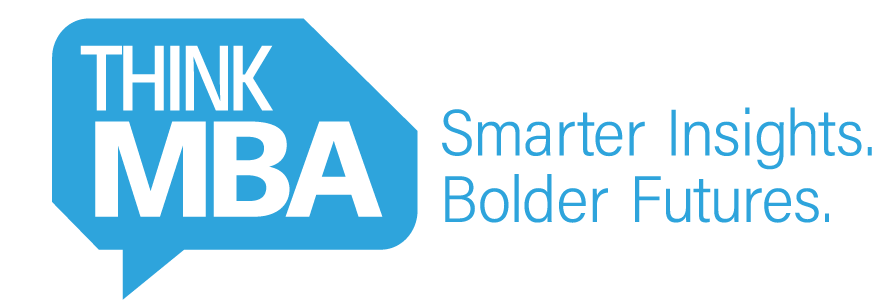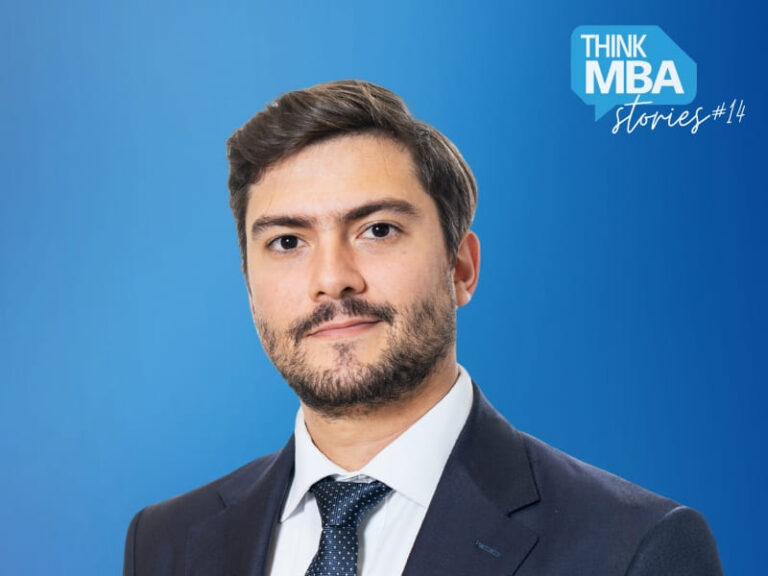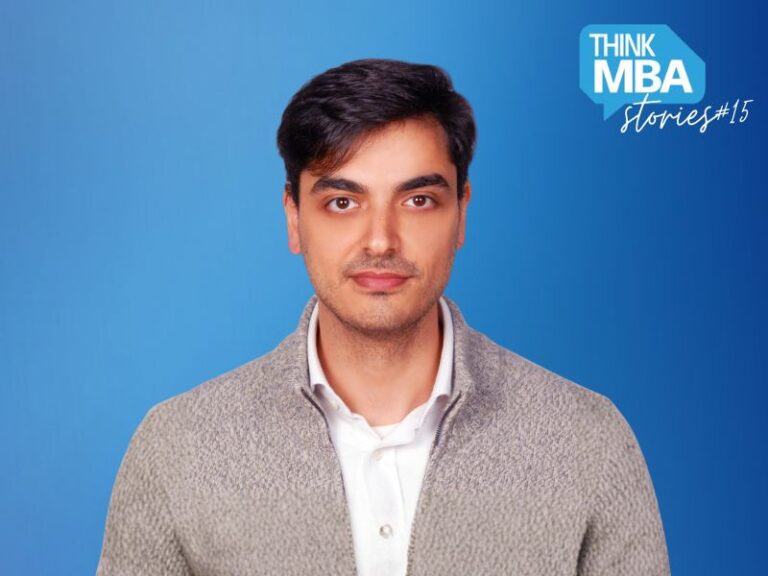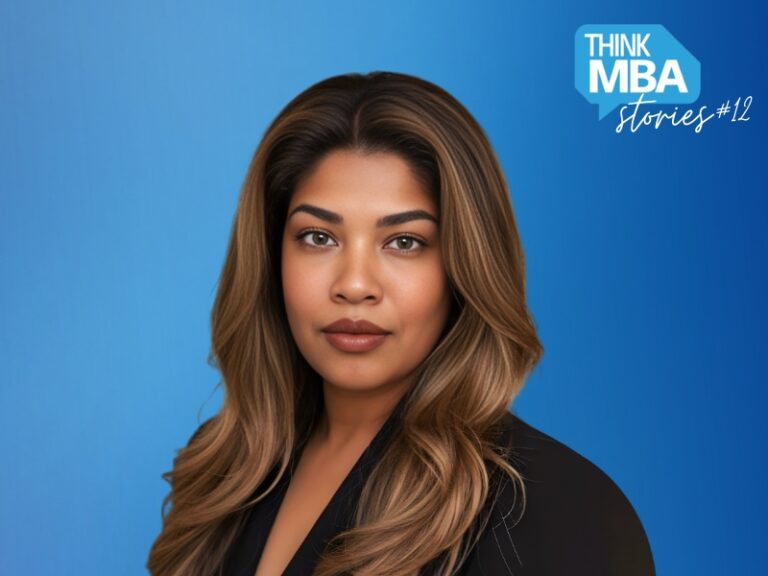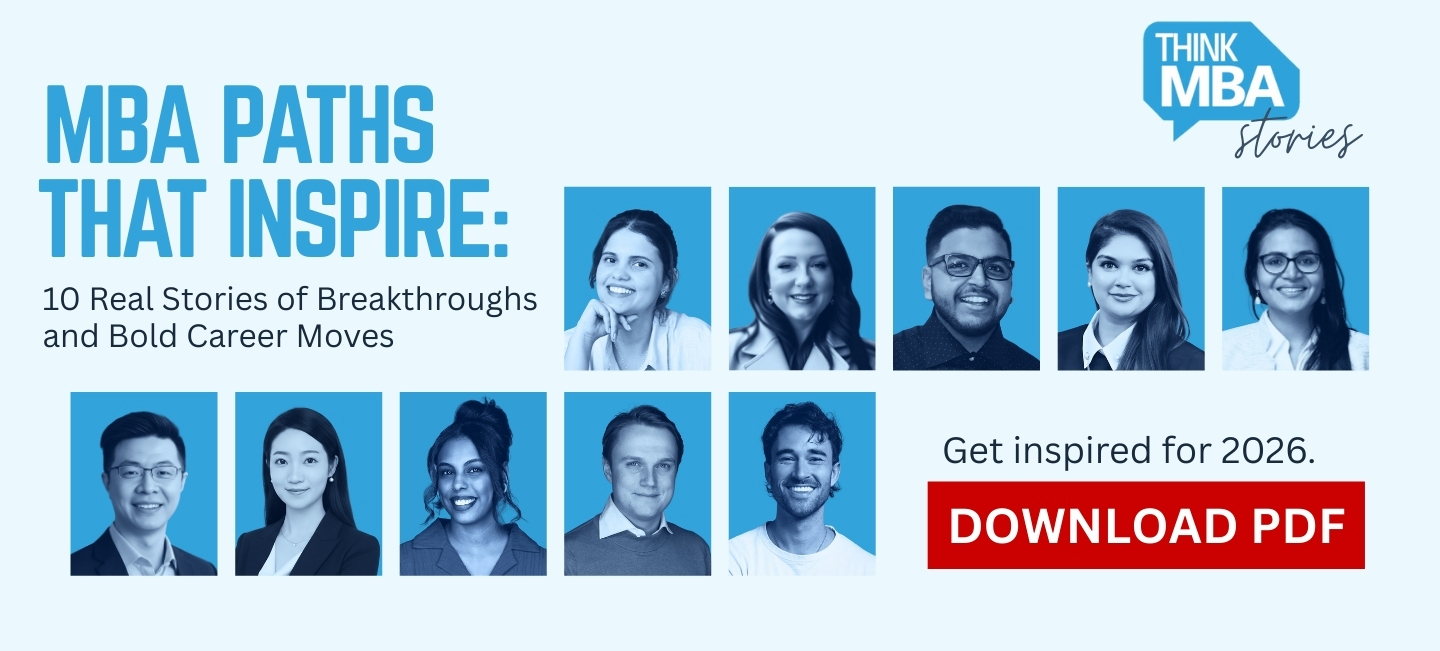Contact Us
[email protected]
From Mckinsey to Meaning: Tathiana Machado’s MBA Journey

Editor’s Note: At ThinkMBA, we believe the most powerful insights often come not from glossy brochures or rankings, but from real, lived experiences. That’s why we created our Real Stories series—to shine a light on the personal journeys that reveal what an MBA can truly mean.
In this edition, we meet Tathiana Machado, a former McKinsey consultant whose path took her from elite boardrooms in Brazil to a new calling in leadership and career coaching. Her story is not just about changing careers—it’s about redefining success on your own terms.
With honesty and depth, Tathiana opens up about overcoming imposter syndrome at INSEAD, navigating self-doubt in a global classroom, and ultimately choosing a purpose-driven career that aligns with her values and life goals.
Whether you’re just starting to explore MBA options or contemplating a bold professional pivot, Tathiana’s journey offers clarity, courage, and a reminder: sometimes the most strategic move is the most human one.
ThinkMBA(TA): Can you briefly describe your career path before the MBA, and what it looks like now?
Tathiana Machado (TM): I started my career as a Business Analyst at McKinsey & Company in Brazil. After a few years there I got sponsored to do a top MBA in recognition to by good performance. After INSEAD I stayed 2 years more working at McKinsey as an Associate and Engagement Manager but decided to leave to have a better work life balance and a more hands on experience. I then joined Strategy roles in Tech Scale ups in UAE but never felt really fulfilled and after a long self reflection process and found myself in career coaching.
TA: What were the biggest personal or professional challenges you faced during the MBA journey?
TM: On the personal side it was somehow hard for me to feel comfortable in such an international environment like INSEAD full of brilliant profiles. As a Brazilian, it took me a bit of time to get the confidence and position myself in the same level as my colleagues from more developed countries. On the professional side, INSEAD was the beginning of my trajectory to find what I am really passionate to work. It was during my MBA that I realized that there was so many more options in the job market and it was when I first started to question if I was really happy with my career in consulting. Looking back, I am very grateful I had these challenges during my MBA because they shaped the person that I am today.
TA: What helped you find confidence among so many brilliant profiles?
TM: In the beginning of the MBA, it can be overwhelming to be surrounded by such amazing profiles from different companies and different parts of the world. I definitely felt a bit insecure at first.
“I also realized that even though my peers were very strong and high-performing, nobody knows everything. There is always something you can contribute.”
What helped me overcome that and become more confident was, during the MBA and the class discussions, I slowly started to realize I had a lot to bring to the table. I had strong experience in strategy and corporate finance through consulting, and I had worked on many projects across Latin America and the US. I could bring those insights, plus my engineering background, to the discussions.
I also realized that even though my peers were very strong and high-performing, nobody knows everything. There is always something you can contribute. People at INSEAD are genuinely interested in each other’s stories and experiences, and slowly I saw that mine was also interesting for them.
On top of that, many people at INSEAD aim to get into consulting after the MBA, and since I was already at McKinsey — the biggest consulting firm in the world — people would come to me for advice or help with recruiting. I was happy to support them, and it also helped me see that I had something valuable to offer. I came to understand that we all have different paths, but we’re all high achievers at INSEAD.
TA: Did you encounter any surprising lessons or unexpected experiences?
TM: My MBA was full of surprising experiences. I met my husband and because of that I moved to the Middle East. I met my best friends. I became more confident and courageous and faced a transformative career transition. INSEAD definetively brings a complete different life perspective to its students and shape better leaders.
TA: In which way have you experienced that INSEAD brings a completely different life perspective and shapes better leaders?
TM: INSEAD’s class profile is incredibly diverse. Each cohort brings together people from over 90 nationalities and a wide range of career backgrounds – from lawyers and journalists to consultants, engineers, and architects. The classes are highly participative, with discussions strongly encouraged. This diversity of backgrounds and cultures leads to rich conversations, where people bring very different perspectives to the table. It really opens our minds to new ways of thinking and to seeing the same topic or issue from multiple angles.
On top of that, INSEAD’s campuses in Europe, Asia, and the Middle East offer exposure to how companies operate in different regions of the world. This stands in contrast to many US MBAs, where discussions often focus on American companies with similar ways of doing business. At INSEAD, we analyze companies in China, the Middle East, Europe, and beyond, along with the specific challenges they face. This global perspective helps shape students into well-rounded, internationally-minded leaders.
TA: How did you get into career coaching? And did your MBA play a role when you made that transition?
TM: Since INSEAD, I started to reflect on my career choices and what was important to me. Most of those reflections were triggered by the coaching sessions that are part of the MBA. That was actually my first contact with coaching, and it sparked something deep in me.
After INSEAD, I went back to consulting, and later I moved to tech. But those reflections stayed with me. I kept thinking about the life I wanted to have with my family, with my kids, and the impact I wanted to create in the world.
“I realized that the path I was on – management consulting and then strategy – was interesting and impactful within companies, but for me, what truly mattered was human impact, not corporate impact.“
I realized that the path I was on – management consulting and then strategy – was interesting and impactful within companies, but for me, what truly mattered was human impact, not corporate impact. So I decided to take the leap and start my own business.
The experience I had at INSEAD gave me a lot of tools to support this transition. My first clients came through the INSEAD alumni network. I truly don’t think I’d be the coach I am today if I hadn’t had INSEAD in my life and on my CV.
TA: How are you currently using your MBA in your coaching?
TM: I use a lot from my MBA in my coaching work. Most of my clients either did an MBA and now feel stuck in their careers, or are considering doing one. Since I went through these experiences myself, I can really relate to them and understand what they’re going through.
I also support many clients who are thinking of doing an MBA at INSEAD or elsewhere. Having experienced it firsthand helps me guide them better in making the decision to do an MBA or not, and in choosing the right one.
And of course, all the business knowledge I gained plays a role too. At the end of the day, I’m a coach but also an entrepreneur. I’m the founder of my own business, and that means I need to market it, manage finances, and wear many hats. I can do all of that well because of the foundation I built through my career in consulting and my MBA at INSEAD.
TA: What is your advice for people right at the beginning of their MBA journey?
TM: My advice is to really enjoy everything the school has to offer. It’s not just academics, it’s not just recruiting, and it’s not just the social side – there are many things you can explore and enjoy during this period.
Try to find a balance between learning the skills that will help you become the leader you want to be, recruiting for a role you truly want, building friendships and a strong network, and enjoying the social life.
Also, take time to reflect on your choices and where you want to be five or ten years from now. The MBA is a unique opportunity to slow down and think about your values and what really matters to you, before you return to the intense hustle of the job market.
TA: What do you wish more MBA students understood about career fulfillment and success early on?
TM: What I truly believe – and what I tell all my clients – is that success and fulfillment are relative. It’s not black and white.
Each person has their own definition of what success and fulfillment mean. For some, it might be having a prestigious, high-profile job. For others, it could be building their own business, making a lot of money, having time to train for marathons, or doing meaningful work while spending time with their families.
So my advice to MBA students is: take this opportunity to understand what success means to you. Get clear on your priorities. Then, as you go through recruiting or evaluate offers or promotions, use that personal definition of success as your guide. That’s what helps you build a career that feels more fulfilling and peaceful.
“So my advice to MBA students is: take this opportunity to understand what success means to you. Get clear on your priorities. Then, as you go through recruiting or evaluate offers or promotions, use that personal definition of success as your guide. That’s what helps you build a career that feels more fulfilling and peaceful.“

